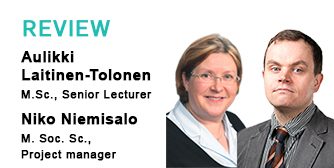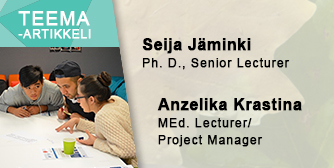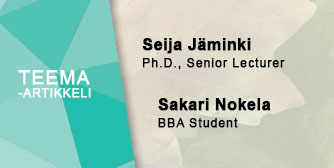Human trafficking is a global challenge, and when linked with terrorism and other inequalities, it causes a severe threat to tourism as a livelihood and leisure.


Human trafficking is a global challenge, and when linked with terrorism and other inequalities, it causes a severe threat to tourism as a livelihood and leisure.

Students should quite independently be allowed to acquire the entrepreneurial competencies but the tutors and mentors should assist and support the students when help is required. The method is called scaffolding.

Learning community where the students are able to share ideas, argument and reflect on opinions lead to a deeper awareness of the complex issue. Training organizations have transformed a lot during last five to ten years. The transformation of Finnish public sector is still far from the highest levels of the best private sector examples.